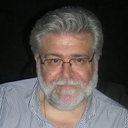Useful known and unknown views of the father of modern medicine, Hippocrates and his teacher Democritus.
Anahtar kelimeler
Öz
Hippocrates is considered to be the father of modern medicine because in his books, which are more than 70. He described in a scientific manner, many diseases and their treatment after detailed observation. He lived about 2400 years ago. He was born in the island of Kos and died at the outskirts of Larissa at the age of 104. Hippocrates taught and wrote under the shade of a big plane tree, its descendant now is believed to be 500 years old, the oldest tree in Europe--platanus orientalis Hippocraticus--with a diameter of 15 meters. Hippocrates saved Athens from a plague epidemic and for that was highly honored by the Athenians. He considered Democritus--the father of the atomic theory--to be his teacher and after visiting him as a physician to look after his health, he accepted no money for this visit. Some of his important aphorisms were: "As to diseases, make a habit of two things -to help or at least to do no harm". Also: "Those by nature over weight, die earlier than the slim.", also, "In the wounds there are miasmata causing disease if entered the body". He used as a pain relief, the abstract from a tree containing what he called "salycasia", like aspirin. He described for the first time epilepsy not as a sacred disease, as was considered at those times, but as a hereditary disease of the brain and added: "Do not cut the temporal place, because spasms shall occur on the opposite area". According to Hippocrates, people on those times had either one or two meals (lunch and dinner). He also suggested: "...little exercise...and walk...do not eat to saturation". Also he declared: "Physician must convert or insert wisdom to medicine and medicine to wisdom". If all scientists followed this aphorism we would have more happiness on earth.


